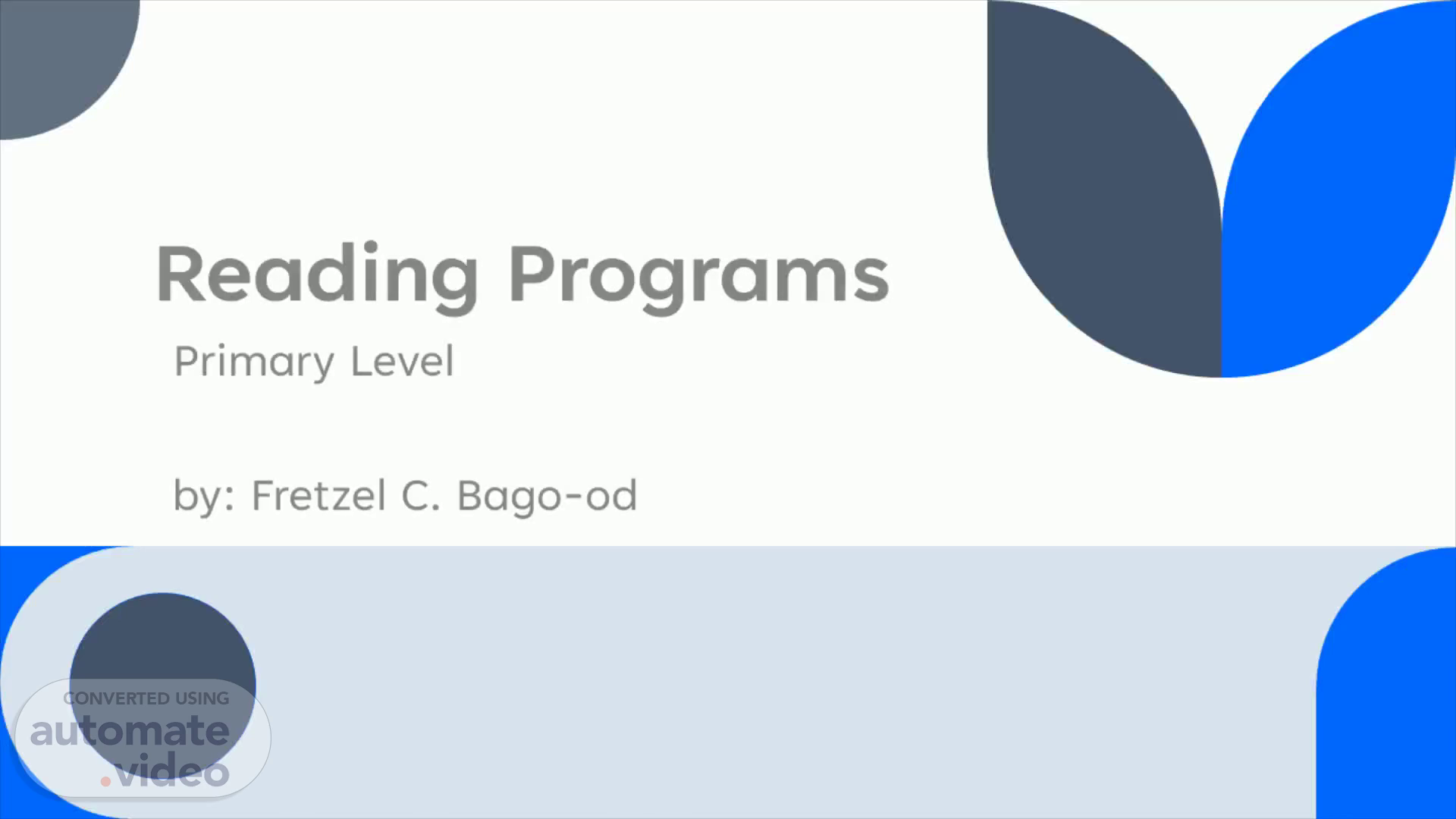Page 1 (0s)
[Audio] Reading Programs Primary Level by: Fretzel C. Bagood.
Page 2 (10s)
[Audio] Good evening, everyone, this is my working title Alphabet Phonemes Actions ( Alpha): A Needs-based Reading Intervention Program for Grade 3. Introduction Reading difficulties are most often caused by poor phonemic awareness ( Kilpatrick, 2019). To increase their understanding of the alphabet and phonological awareness, learners at the emerging reading level require explicit teaching of alphabet sounds. The overall development of the above-mentioned language literacy areas is essential for word decoding and spelling. Learners can use these relationships to understand both known and unfamiliar words and start reading fluently when they learn the regular links between letters and phonemes..
Page 3 (56s)
[Audio] Relevance and Importance of the study According to an ILA report, 66% of the 1,443 respondents from 65 countries and territories chose determining effective instructional strategies for struggling readers as the most important topic for improving literacy outcomes in the next decade. In this connection, the identification of efficient teaching strategies is of paramount importance in dealing with struggling readers. This dilemma worsened during the pandemic. Thus, it resulted in low academic performance, and some of the pupils had difficulty identifying the letter names and their corresponding phonemes..
Page 4 (1m 37s)
[Audio] In support of DepEd initiatives, I found it useful in the conduct of the study to select first- to third-grade pupils. I will use ALphabets PHonemes Actions; a strategy the same as peer coaching using multi-sensorial experience. This verbalizes the letter and intellectualizes its phonemes. Its goal is to decode cvc words into multisyllabic words. Furthermore, it bridges the gap in language literacy during early childhood. Phonemic awareness and alphabet learning should be interactive, authentic, and fun ( Musselwhite, 2011)..
Page 5 (2m 19s)
[Audio] Journals and Articles relevant to my working title Article 1 I Can Read: A Needs-Based Reading Intervention Program for Grade 3 Pupils Annotation It presents another reading intervention program conceptualized and crafted for grade 3 struggling readers. It also follows a developmental research design parallel to my proposed research topic. It is the methodical study of creating, producing, and assessing educational processes, products, and programs that must adhere to internal consistency and effectiveness standards..
Page 6 (3m 0s)
[Audio] Article 2 PARM: A Classroom-Based Reading Intervention Program Annotation It is an additional study on the plethora of reading intervention programs for struggling readers. Peer coaching is remarkable in that experienced learners help struggling readers. A purposeful sampling technique has been used in this study. This focuses on the achievement of the respondents in every activity given with the help of their peer coach..
Page 7 (3m 33s)
[Audio] Article 3 Effectiveness of Response to Intervention in Third Grade Reading Reading Outcomes Annotation RTI is a common strategy for raising the reading proficiency of struggling readers. This study focuses on how well it works for students in third grade. The theoretical underpinnings of this quantitative analysis are Maslow's hierarchy of needs and Vygotsky's social constructivist theory..
Page 8 (4m 5s)
[Audio] Article 4 Reading Intervention Strategies for Struggling Readers Annotation The various ways that people see reading: for some, it is a pastime, while for others, it is a chore. The significance of reading intervention in raising students' reading levels. Additionally, it offers a variety of ways for evidence-based reading intervention. It also talks about how to put reading intervention tactics into practice..
Page 9 (4m 40s)
[Audio] The repertoire of references.. References.
Page 11 (5m 25s)
[Audio] Thank you!. Thank you.
